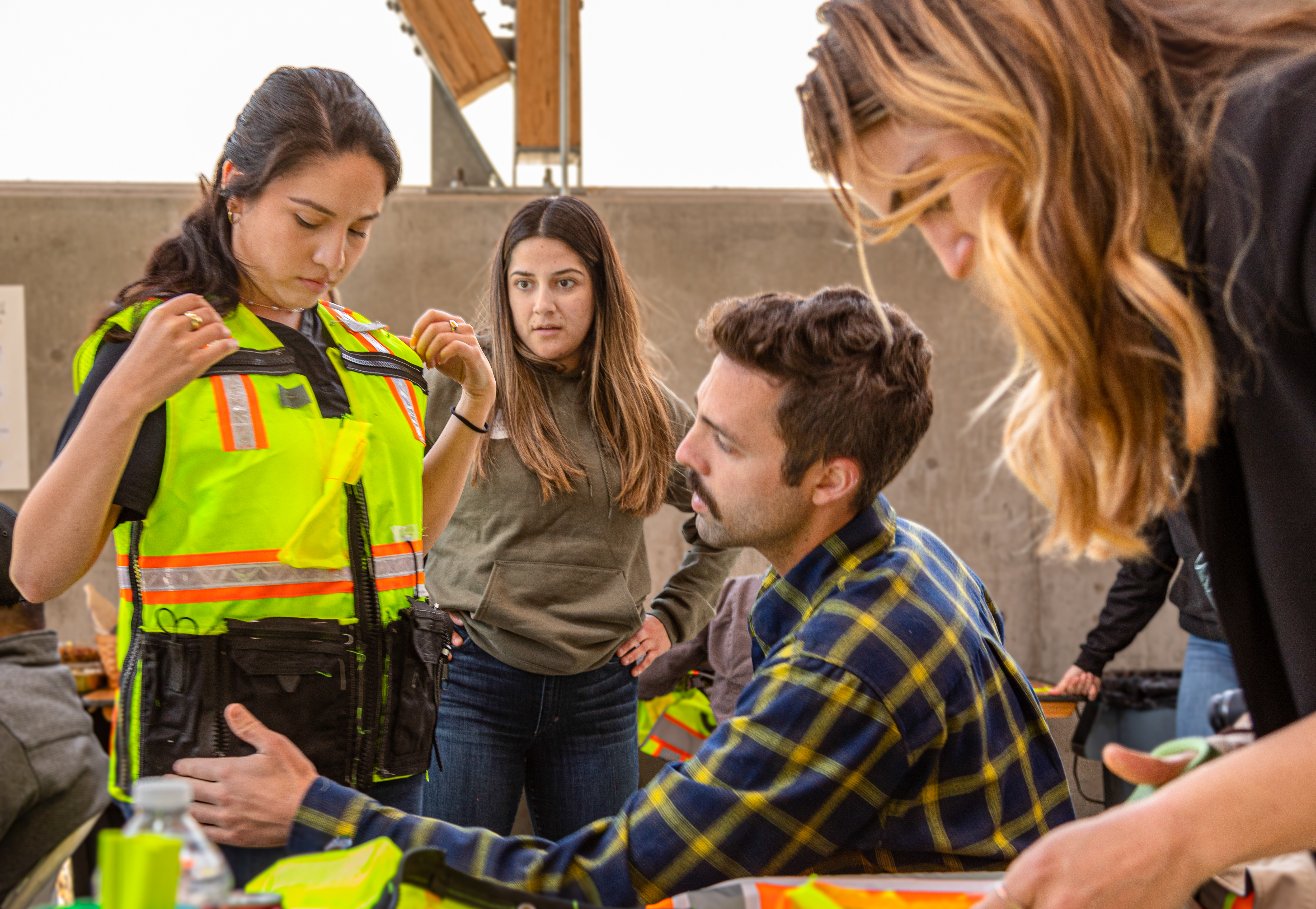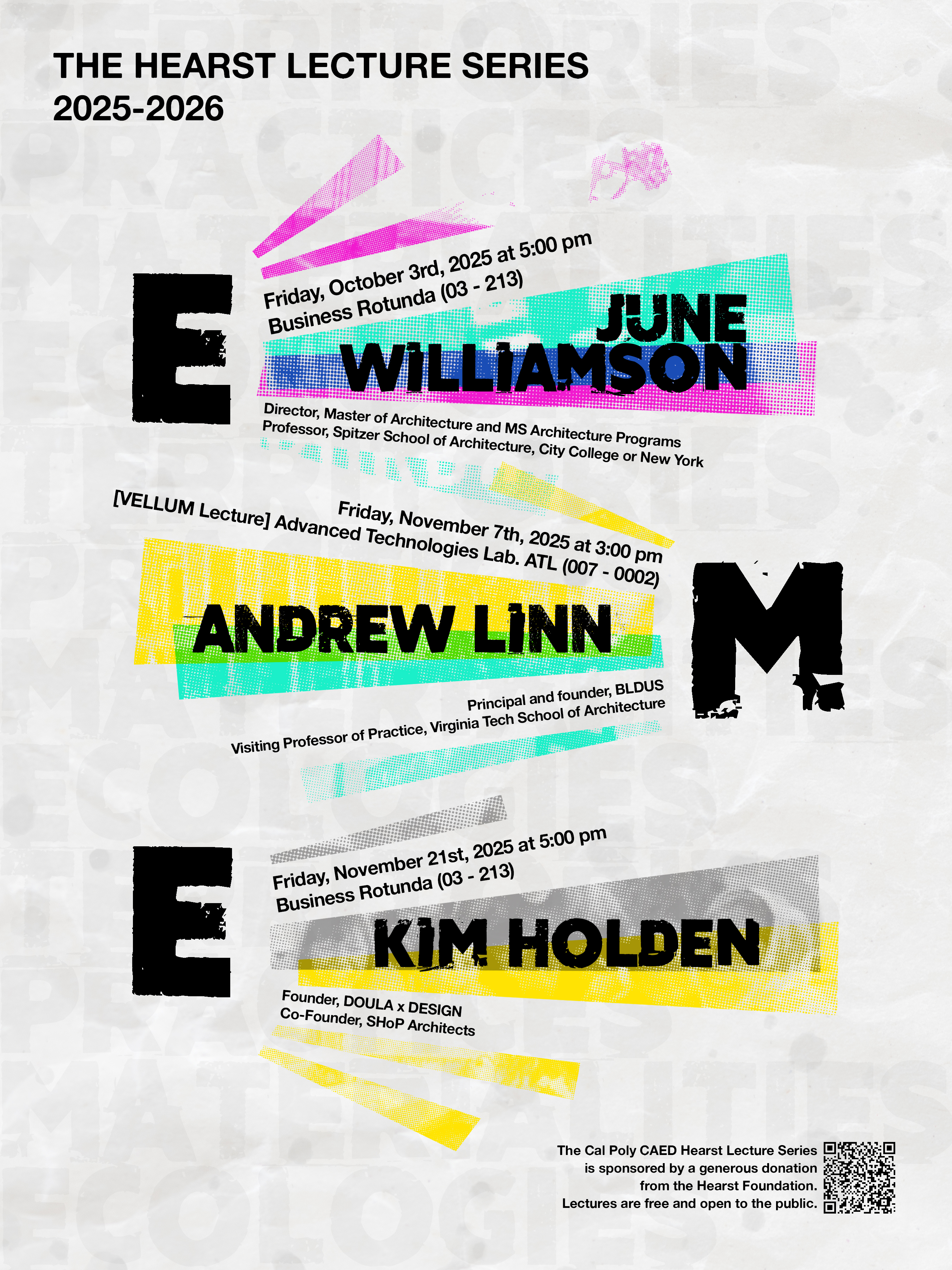 The First V.E.S.T. Hackathon
The First V.E.S.T. Hackathon
By Alex Bires, Photo by Josef Kasperovich
Click on the image to view a video narrative of the collaborative event
Construction safety experts met at Cal Poly this past spring to recreate an overlooked tool: the safety vest. The two-day V.E.S.T. (Verifying Everyone’s Safety Together) hackathon was built on research conducted by construction management alumna Lizette Galvez, who looked at the effects of wrong-fitting vests on a diversifying workforce. Supported by construction management faculty like Stacy Kolegraff, student leaders presented data on the benefits and challenges of reimagining the outdated vest.
“Really, what this comes down to is an industry that was built for people who were not women,” Kolegraff explained. “It still is a male-dominated field, and it continues to be; women are only about 11%, and then the trades about 3%.”
Historically, companies are more likely to buy vests in bulk because it makes sense economically. However, Kolegraff expresses that if the construction management industry wants to become more inclusive, those everyday items that provide safety must be appropriate for all employees because one size does not fit all anymore.
One of the current roadblocks to achieving a diverse range of vests is the standard for minimum vest size. Currently, most women are subjected to wearing oversized vests that can place them in hazardous situations. In a poll conducted of construction workers, women were more than five times more likely than men to say their vest affected their safety on the job. As was the case with project engineer at P.C.L. Construction, Lizette Galvez.
“I was given a safety vest that did not properly fit my body. It was very loose fitting. And, in one instance, I got latched on to a piece of rebar,” Galvez explained. “I realized there was an excavation right by me so that in itself could have ended really dangerous.”
While safety is the No. 1 priority, decreased confidence, trust and focus were associated with wrong-fitting vests.
“It just makes me feel less confident. I need to have as much confidence as I can so that I can get in, get the job done safely,” said Kelly Britland, project manager for Western Allied Mechanical. “I would just like for everyone to have a vest that fits them, that they’re comfortable in, that they can own and be confident, and that will be the tool that we need it to be.”
On the second day, participants collaborated to assemble their ideal vests, complete with pockets, drawstrings, and other inclusive features. The teams offered unique perspectives, and by the end of the day, each had its prototype for a more “right-fitted” workforce.
The winning design was a vest that featured weight distribution with adjustable straps on the inside, vertical zippers for more access points, and a higher-up back pocket for better ergonomics in addition to tool-specific storage.
The Cal Poly Construction Management Department thanks Radians and Skanska U.S.A. Building for their contributions; student organizers Sophie Stewart, Amanda Schrader, Oliver Leograndis and Cole Bernabei on a successful event; and all the participants:
— “CalPockets” by Whiting-Turner and P.C.L. Construction
— “ConTech” by Western Allied Mechanical, Pacific Structures and Build Group
— “InVest Safety” by Gilbane Building Company and Webcor Builders
— “Kanye Vest” by Howard Building Corporation and Precision Construction Services
— “Scrunch VZ” by C.W. Driver, Milender White and Baker Electric
— “The SaVest” by Procore, Stanley Black and Decker, and Del Amo Construction
The second annual V.E.S.T. Hackathon is already being planned for 2023.




